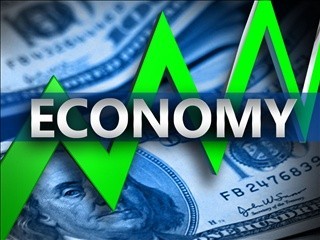The number of UI claims rose to a seasonally adjusted 362,000, though they remained at a level consistent with modest hiring.
The Labor Department said Thursday that the four-week average, a less volatile measure, rose 8,000 to 360,750, the highest in six weeks. A department spokesman said heavy snowstorms in the Northeast didn't affect the total.
Applications are a proxy for layoffs. They have trended downward recently. The four-week average has declined 7.5 percent since mid-November and fell to a five-year low three weeks ago.
Still, the increase puts applications back in the 360,000-to-390,000 range, where they have fluctuated since early last year.
At the same time, job growth has picked up. Employers added an average of 200,000 jobs a month from November through January. That's up from about 150,000 in the previous three months.
In January, the economy added 157,000 jobs, the government said this month. And revisions showed that employers added an average of 181,000 jobs a month last year, up from an earlier estimate of 153,000.
Still, the unemployment rate ticked up to 7.9 percent from 7.8 percent in December. Economists think the rate will slowly decline if hiring continues at last year's monthly pace of 180,000. The rate fell 0.7 percentage point in 2012.
The economy shrank at an annual rate of 0.1 percent in the October-December quarter, hurt by a sharp cut in defense spending, fewer exports and sluggish growth in company stockpiles. That was much worse than the 3.1 percent growth recorded in the July-September period.
But economists predict that the October-December growth figure will be revised in coming months to show a small increase, after more positive data about last quarter has been reported. Economists now estimate that the economy expanded at an annual rate of about 0.4 percent in the fourth quarter.
Growth will likely pick up a bit in the January-March quarter to an annual rate of 1.5 percent, analysts forecast. That's better than the fourth quarter but below last year's expansion of 2.2 percent.
CONSUMER PRICES
U.S. consumer prices were flat last month, the latest sign inflation is in check. That could give the Federal Reserve leeway to continue its efforts to stimulate growth.
The consumer price index has risen 1.6 percent in the 12 months ending in January, the Labor Department said Thursday. That's down from a 2.9 percent pace a year ago.
Excluding the volatile food and energy categories, core prices rose 0.3 percent in January, pushed up by higher costs for apparel, air fares and rents. Core prices have risen 1.9 percent in the past year, below the Fed's inflation target.
The Fed is purchasing $85 billion in Treasurys and mortgage bonds each month in an effort to keep interest rates low. Last month, some Fed policymakers expressed concern the purchases could cause inflation.
Low inflation leaves consumers with more money to spend, which benefits the economy.
Inflation slowed dramatically last year. Consumer prices rose only 1.7 percent in 2012, down from 3 percent in 2011.
Food prices rose 1.8 percent last year, compared with 4.7 percent in 2011. Gas prices rose just 1.7 percent. That followed annual gains of nearly 10 percent in 2011 and roughly 14 percent in 2010.
The relief at the pump ended in recent weeks, with prices rising steadily this month. Higher gas prices will likely push up measures of inflation in February, though economists expect overall price increases to stay mild.
Gas prices averaged $3.77 a gallon nationwide on Wednesday, according to AAA. That's up 46 cents from just a month ago.
Tame inflation also makes it easier for the Fed to continue its efforts to accelerate the economy. If the Fed feared that prices were rising too fast, it might have to raise interest rates. The Fed has kept the benchmark interest rate it controls at nearly zero, a record low, for more than four years.
With job gains and economic growth steady but modest, many businesses are reluctant to raise prices for fear of losing customers. That's helped keep inflation mild. Workers also aren't able to demand higher wages when growth is weak. That limits their ability to spend more.
Still, several Fed policymakers suggested last month that the central bank might have to scale back its bond buying to avoid escalating inflation or disrupting bond markets, according to minutes of the Fed's Jan. 29-30 meeting released Wednesday.

http://accesswdun.com/article/2013/2/258547
